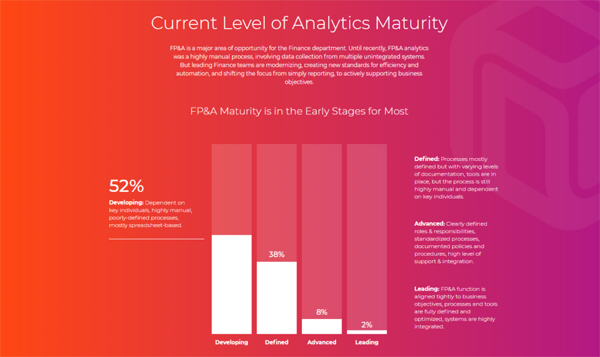
“Look, marketers. Everywhere the light touches is content beloved by customers.”
“But what about that shadowy place over there?”
“That’s our unseen content. We worked hard to create it, but nobody ever visits it.”
“That’s really depressing.”
“That’s life.”
Okay, sorry to bring the room down. And I’m also sorry to say that it gets worse. A recent study found that 69% of all web content is not seen by consumers.

The remaining 31% is our kingdom.
Fortunately, there are many ways to create content that beats the odds. For example, you can co-create with influencers, or experiment with interactive content that inspires social media sharing. But what about the content you have already created? The really good stuff that never caught on with an audience?
With the right search engine optimization, you can shine a light on that content and help it earn organic traffic. Here’s how we do it.
Ungate the Good Stuff
Five years ago, the best practice for marketers was to gate your most valuable content. It makes sense: You’re offering something great, so people should be willing to offer their contact info in return for it. It’s a simple value exchange.
The flip side, though, is that your most impressive and useful content is now being seen by a smaller audience. You’re intentionally introducing a barrier between your target audience and your most persuasive content.
I’ll grant that the debate of “to gate or not to gate” is ongoing, and marketers are seeing results with either tactic. But especially for SEO purposes, we recommend trying an ungated approach.
For example, this asset from client SAP has it all: influencer participation, stats, eye-popping interactive visuals. It’s ungated, and the container page is optimized for search. Keeping this substantial piece of content ungated makes it more crawlable, findable and sharable. As people discover and share it, it gets even more SEO juice. And as an added bonus, the included influencers are far more likely to share an ungated asset.
Ditch the PDFs
Everybody loves PDFs, but… okay, so nobody really loves PDFs. Their popularity is really a holdover from the old days of the web. You didn’t want to take a beautifully-designed piece of content and try to recreate it in clunky HTML. So the PDF made sure people would see the content exactly as it was designed.
Now, however, you don’t have to be a web designer to create something beautiful on a regular web page. And since plain text is crawlable and PDFs are not, turning that PDF into a web page is a solid SEO move.
Our client Prophix just published original research in their CFO Benchmarks Report. Instead of making a landing page with an ungated PDF embedded, we turned the report into a long-scrawl web page, then offered a PDF download at the bottom. That way, the content is crawlable by search engines and more easily accessible to potential readers. What’s more, the content is now optimized for visually impaired users as well.
Consolidate Posts by Topic Clusters
It’s standard SEO practice to combine thin content that addresses the same keyword into one comprehensive post. If you’re not doing that type of repurposing yet, that’s a good place to start.
To take it to the next level, think beyond individual keywords and consolidate posts around topic clusters. For example, your outdoor gear company might have a post for the best hiking shoes, one on how to pick the right backpack, one on the best shirts to wick away sweat, and so on.
Even though these posts have different keywords they’re aiming for, they all fall under a cluster: Best hiking gear. Combining all the posts into a mega post with navigation elements gives you a more valuable asset for search engines and humans. People will likely spend more time on the page, and be more likely to share and link to your comprehensive resource.
Build a Web of Internal Links
Another common cause of hidden content is that it’s minimally accessible through your site’s navigation. This is especially true if you’ve changed your site architecture over time — and who hasn’t? Content can end up with only a couple links to it, or even none at all.
Content architecture is one way that search engines can better understand your site and which content to recommend to searchers. An orphaned page with few or no links is unlikely to pass muster.
This guide from Search Engine Journal can help you find your orphaned pages. Once you identify them, add links to and from relevant pages throughout your site. The goal is to build a logical link structure that helps users and bots understand which content is the most important.
You may also find that these orphaned pages are ripe for consolidation and optimization into more substantial content pieces, too.
Build External Links
The end goal of our first four points is creating assets that are substantial, valuable, easy to find and share, and optimized for SEO and humans. This type of content is perfect for ethical link building.
Backlinko has an excellent, comprehensive linkbuilding guide (ungated!) that’s well worth your time. But here are a few quick strategies to get started:
- Write guest posts for relevant industry publications and include links back to your content.
- Identify posts that are linking to similar, but outdated content and suggest updating with a link to your piece.
- Promote your content with paid and unpaid social media posts — those shares will indirectly influence your ranking, and can lead to more backlinks as well.
Let Your Little Light Shine

It can be demoralizing to think that 69% of your content is stuck in the dark. But think of it this way: You have a massive resource of already-written content that can find an audience with just a little SEO illumination. Make your content more accessible, easier to find, and more substantial for your audience, and you can bring that forgotten content into the light.
We can help bring your content out of the dark. Request an SEO audit to get started.





